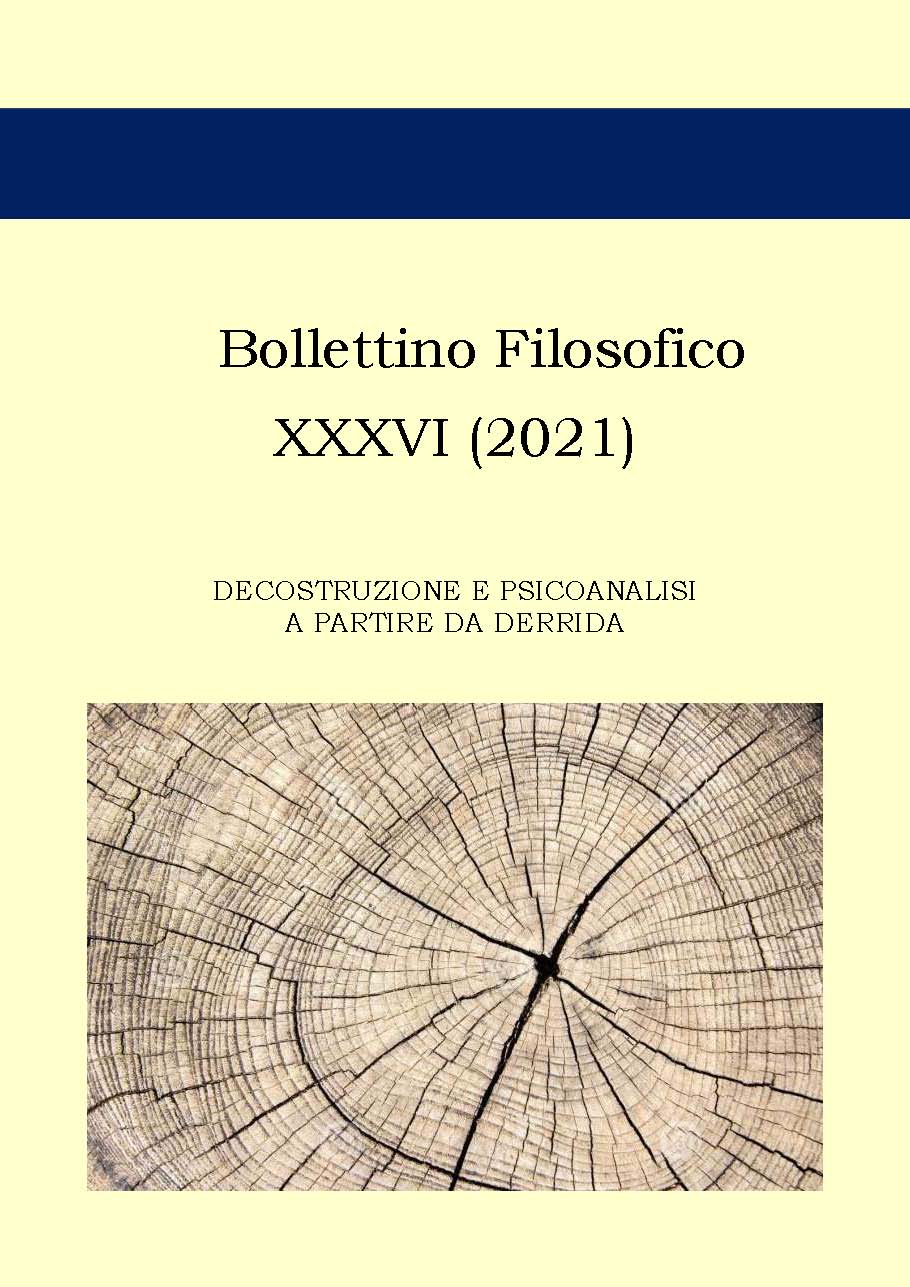Derrida’s Pas between Deconstruction and Psychoanalysis
Abstract
This paper follows some traces of a problem that often emerges in Jacques Derrida’s works: the relation between the devil and psychoanalysis. Many references to this connection appear in his texts, even if they have not been explored by Derrida’s readers yet. The Post Card. From Socrates to Freud and Beyond (1980) is the main text of this investigation, as this book introduces two conceptual figures that often return in Derrida’s deconstruction. The first one is the step, which refers both to the devil’s limping and to Freud’s speculation in Beyond the Pleasure Principle (1920). The second one is the expression “devil’s advocate”, used by Freud in the same text to present and justify his theoretical discoveries. This article claims that both these figures hide a deep connection with Derrida’s conception of deconstruction.
Keywords: Deconstruction, Derrida, Fort/da, Freud, Psychoanalysis
Downloads
The author retains the copyright of his work whilst granting anyone the possibility “to reproduce, distribute, publicly communicate, publicly exhibit, display, perform and recite the work”, provided that the author and the title of the journal are cited correctly. When submitting the text for publication the author is furthermore required to declare that the contents and the structure of the work are original and that it does not by any means compromise the rights of third parties nor the obligations connected to the safeguard of the moral and economic rights of other authors or other right holders, both for texts, images, photographs, tables, as well as for other parts which compose the contribution. The author furthermore declares that he/she is conscious of the sanctions prescribed by the penal code and by the Italian Criminal and Special Laws for false documents and the use false documents, and that therefore Bollettino Filosofico is not liable to responsibilities of any nature, civil, administrative or penal, and that the author agrees to indemnify and hold Bollettino Filosofico harmless from all requests and claims by third parties.
